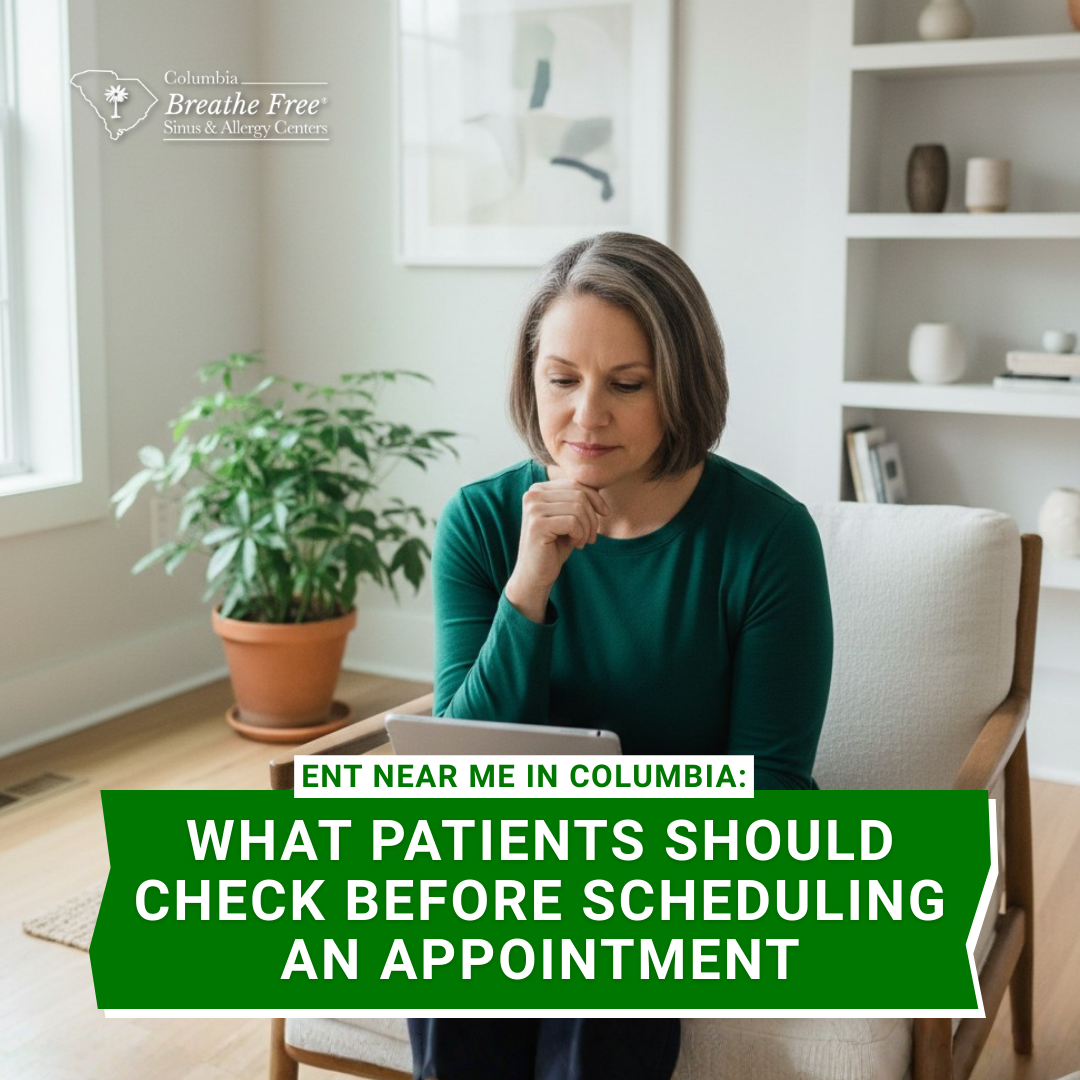
How Colder Weather Affects Your Sinuses: Tips for Staying Comfortable This Winter
The chill of winter can be refreshing, but it’s not always kind to your sinuses. If you’ve ever felt stuffy, dry, or had headaches as the temperatures drop, you’re not alone. Colder weather can bring on all sorts of sinus issues, making an already busy season even more difficult. Understanding how winter impacts your sinuses and learning simple ways to stay comfortable can help you enjoy the season without the extra discomfort.

Why Colder Weather Affects Your Sinuses
Winter air tends to be colder and drier, which can irritate your nasal passages. The drier weather can cause the lining inside your nose to lose moisture, making it easier for germs to enter and cause infections. On top of that, heating systems, while keeping you warm, often make indoor air even drier.
When it’s cold outside, blood vessels in your nose may swell to warm the air you’re breathing, which can lead to congestion. For some people, cold air itself can act as a trigger for sinus pain or pressure, especially if they already have conditions like allergies or sinusitis.
Tips for Staying Comfortable This Winter
Winter weather doesn’t have to mean months of sinus troubles. With a few simple adjustments to your daily routine, you can protect your nasal passages and stay comfortable through the colder months. Here are some easy ways to keep your sinuses healthy all season long.
- Use a Humidifier
Adding moisture to the air in your home can make a big difference. A humidifier helps prevent your nasal passages from drying out, making you less prone to irritation and infections. Aim to keep indoor humidity between 30-50% for the best results.
- Stay Hydrated
Drinking plenty of water helps keep your body and sinuses hydrated. Herbal teas, broths, and warm drinks can also soothe your throat and nasal passages on chilly days.
- Protect Your Nose Outdoors
When heading out into the cold, try covering your nose with a scarf. This warms and humidifies the air you breathe, reducing the shock of cold air on your nasal passages.
- Use Saline Nasal Sprays
A simple saline spray can help keep your nasal passages moist. Regular use can flush out irritants, prevent dryness, and reduce the chance of infections.
- Manage Allergies and Sinus Conditions
If you have ongoing sinus issues or allergies, continue any treatment plans recommended by your healthcare provider. Staying consistent with medications or preventive care can help you avoid flare-ups during the colder months.
- Avoid Sudden Temperature Changes
Going from cold outdoor air to warm indoor air can make sinus symptoms worse. Try to transition gradually when possible, and avoid standing directly in front of heaters or vents.Taking Care of Your Sinuses This WinterWinter doesn’t have to be a season of sinus struggles. By understanding how the cold affects your sinuses and taking a few preventive steps, you can enjoy the season with less discomfort. If you find your sinus issues are persistent or worsening, don’t hesitate to reach out to Columbia Breathe Free. Staying mindful of your sinus health can help you feel better and enjoy more of what winter has to offer.
Other Blogs
.png)
How to Choose the Right ENT for Your Symptoms
When ear, nose, or throat problems don’t go away, it can be hard to know what to do next. Maybe your nose always feels blocked. Maybe your ears feel full, or your throat keeps bothering you. These issues can affect sleep, focus, and daily life. At Columbia Breathe Free Sinus & Allergy Centers, patients often ask how to choose the right ear, nose, and throat doctor—also called an ENT—for their symptoms. While no visit can promise answers or outcomes, knowing what to look for can help you feel more confident before scheduling an appointment.

5 Signs It’s Time to See an ENT (and Not Just Your Primary Doctor)
If you’ve ever dealt with persistent ENT issues like chronic nasal congestion, recurring ear infections, severe sinus pain and pressure, and hearing difficulties, then you know how they may affect your daily life, productivity, and comfort, depending on their severity. Many patients today are taking a more proactive approach to their health and may choose to seek care when they notice persistent or worsening symptoms.

ENT Near Me in Columbia: What Patients Should Check Before Scheduling an Appointment
Searching for an “ENT near me” in Columbia often means you’re dealing with ongoing ear, nose, throat, allergy, or sinus concerns. This article explains what ENT providers typically evaluate and how local environmental factors may influence symptoms, along with what to expect during an ENT visit and how treatment options are commonly discussed. It also covers practical considerations before scheduling, including services offered, insurance, accessibility, and appointment availability, and highlights how Columbia Breathe Free helps patients take informed first steps toward understanding and managing persistent ENT, allergy, and sinus symptoms.
The information provided in this article is for informational and educational purposes only and does not constitute medical advice. It is not intended to diagnose, treat, cure, or prevent any disease or medical condition. Always seek the guidance of your physician or other qualified healthcare provider with any questions you may have regarding a medical condition or treatment.
Results may vary: Treatment outcomes and health experiences may differ based on individual medical history, condition severity, and response to care.
Emergency Notice: If you are experiencing a medical emergency, call 911 or seek immediate medical attention.
